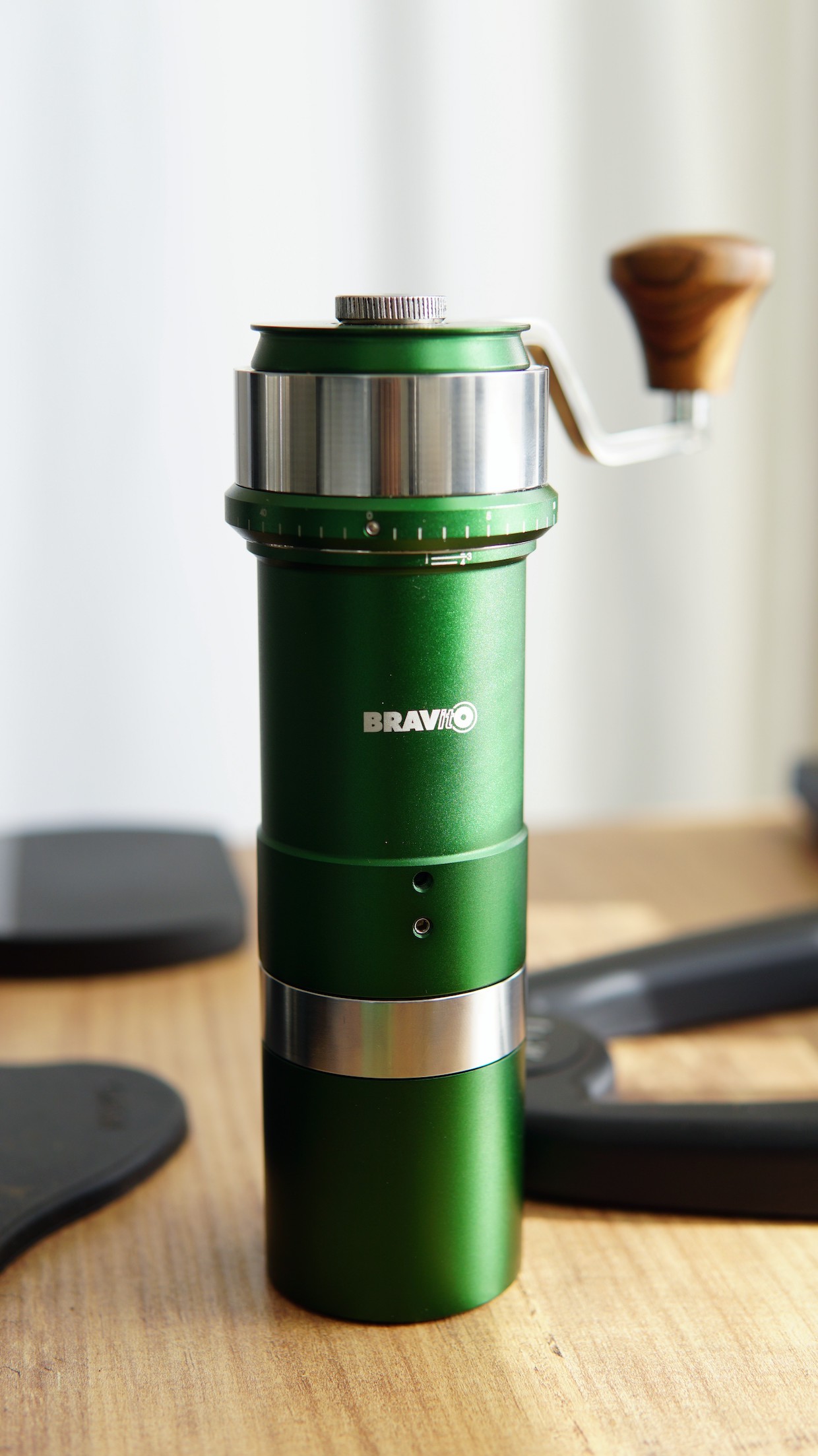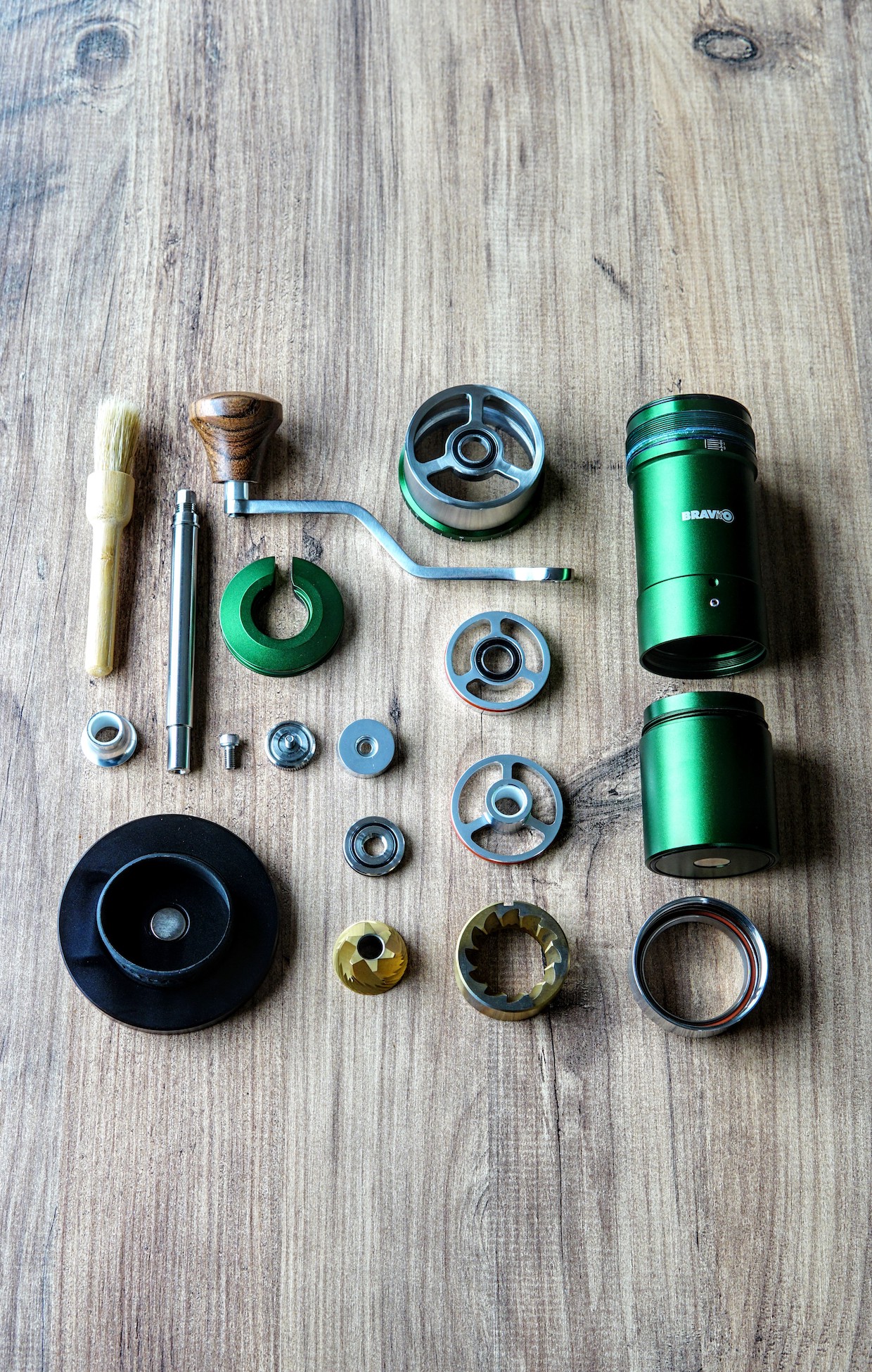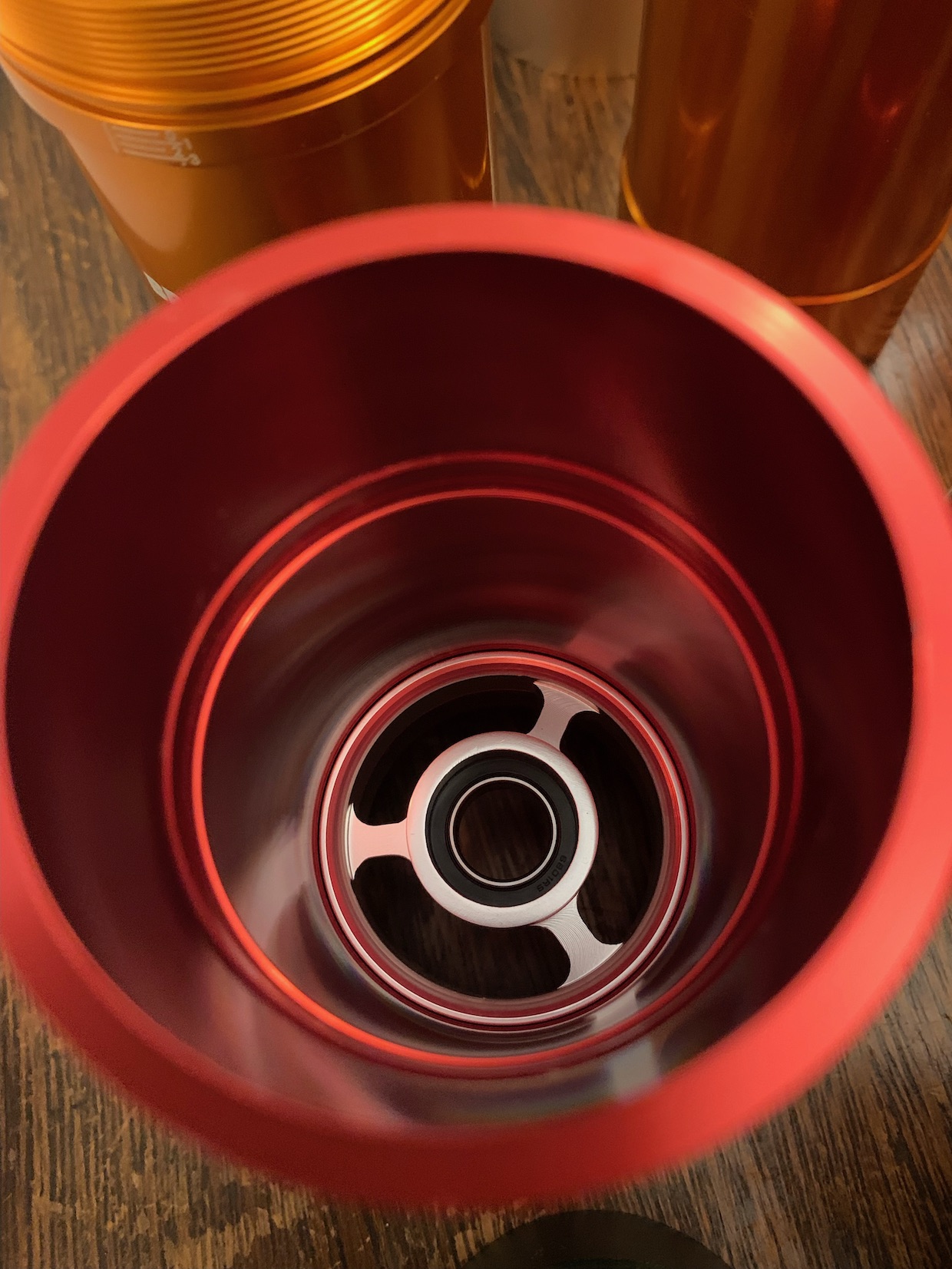Brazilian specialized coffee equipment maker Bravo has released its third manual grinder, the Bravo IT.
The São Paulo-based company, which conducts small production rounds twice per year, said new Bravo grinders will become available to customers overseas this month, with sales to the United States slated to launch next year.
Three points of support are spread down the inside of the all-metal Bravo IT, keeping the 12-millimeter-diameter axle in alignment as it drives the inner of a set of 47-millimeter conical burrs made by Italian burr manufacturer Italmill.
An exterior adjustment collar that includes a “lap marker” to track full rotations of adjustment tops the grinder that represents the latest design from Bravo engineer and founder Gilberto dos Santos Neto.
Bravo’s story will ring bells among fans of the bootstrapping Idaho-based equipment company Orphan Espresso, whose founders went to the drawing board and introduced the Pharos in 2011, a time when premium manual grinders scarcely existed.
As the world’s largest coffee-producing country, Brazil is naturally a hub of innovation regarding techniques and equipment for coffee’s cultivation, harvesting and post-harvest processing. Yet the tools for roasting and brewing coffee continue to come mainly from abroad.
Some notable exceptions include São Paolo-based Carmomaq, which has steadily expanded a line of modern professional roasting equipment for the past 30 years, and Aram Soulcraft, which makes a makes an elegant portable manual espresso brewing device and matching tamper from its home base in Parana.
Bravo also got its start with tampers while seeking to create more homegrown Brazilian brewing tools.
“Bravo started in a coffee forum in Brazil,” Gilberto dos Santos Neto told DCN. “In 2015 there were few options for manual coffee grinders, and to import in Brazil, the tax is expensive, in the range of 100% if brought by courier. So the initial idea was to make a coffee grinder, but as the project was not progressing, I decided to design the tamper.”
Bravo tampers, stands and other tools — including a gravity-driven self-adjusting espresso distribution tool — have since gained distribution in the United States through retailer Whole Latte Love, while grinder sales have come direct-to-consumers through the web.
A Bravo portafilter coffee distribution tool, a new portafilter holder, and a coffee roasting machine are all currently in development under Dos Santos Neto’s watch.
“For a long time Bravo was a hobby. The company was always just me,” said Dos Santos Neto, a former motorcycle mechanic whose primary occupations are now Bravo and a property management business. “Even today I am a company without employees; I only have a freelance assembler.”
The first Bravo grinder, called the Mini, was a predecessor to the current IT model. It featured 48-millimeter conical burrs and a less easily disassembled design, though hundreds of Minis were sold before Bravo paused its production.
“The Bravo Mini is a very robust project, but it resulted in a heavy grinder,” said Dos Santos Neto. “With the Bravo IT, I was concerned about usability. The idea was to have a fully dissemblable grinder with an intuitive adjustment system, that did not have any small detail that would displease the user.”
After the Mini came the Bravo Debut, a larger manual bench-top grinder with a wide base and a set of 71-millimeter Mazzer Robur conical burrs. While the Debut is also no longer in production, an electric version is in the works, as is a motorization kit Dos Santos Neto said will be compatible with existing Debut grinders.
Dos Santos Neto is also focused on scaling up production of the new Bravo IT to meet current pre-orders while planning the U.S. launch. The company projects a U.S. price of roughly $380.
Does your coffee business have news to share? Let DCN’s editors know here.
Howard Bryman
Howard Bryman is the associate editor of Daily Coffee News by Roast Magazine. He is based in Portland, Oregon.
Comment
1 Comment
Comments are closed.











Deseo tener más información de los molinos pequeños